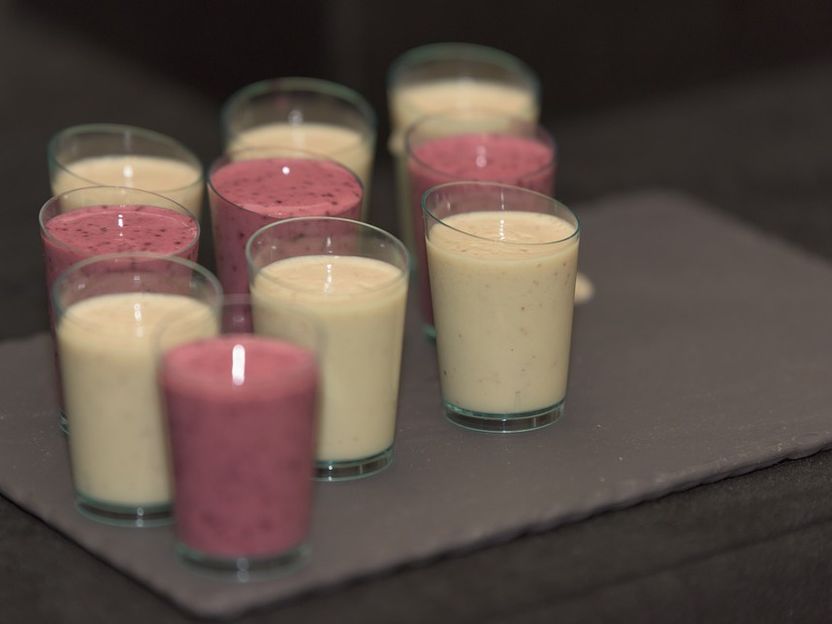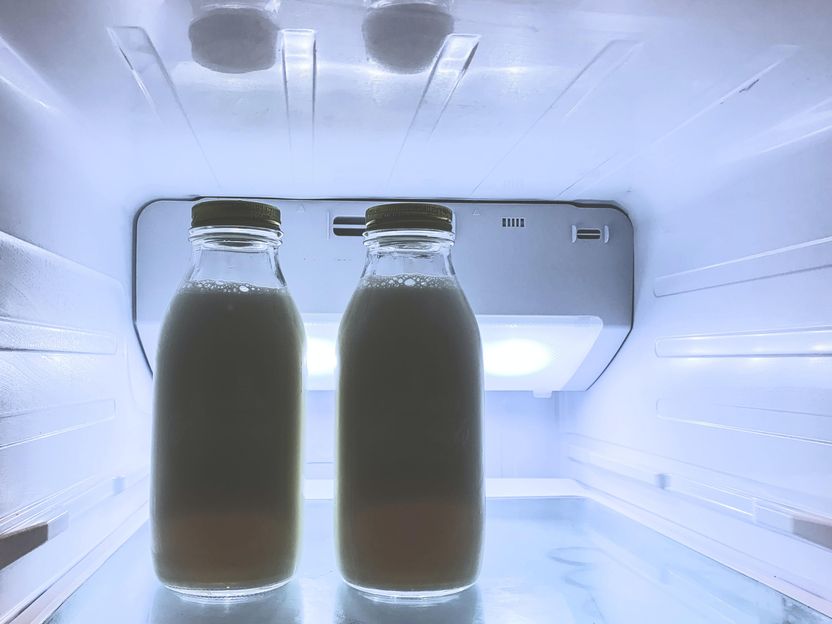Yoghurt drinks are hidden calorie bombs
Advertisement
On behalf of AK Steiermark, the VKI examined 20 yoghurt drinks for their sugar content. Result: Drinking yogurt is often an aromatized calorie bomb and consists only rarely of yogurt, fruits and sugar alone.
Yoghurt drinks have the image of being "healthy" because of their low fat content. Despite the references to the low fat content and the fruits depicted, the drinks contain a lot of sugar or calories per packaging unit and are often flavoured.

kaicho20/ Pixabay
Drinking yoghurt corresponds to a snack between meals
The sugar content of the 20 products ranges from 1 to 12 g (without milk sugar and fruit sugar), the average value is 6.4 g sugar per 100 g. Nine out of 20 products have a filling quantity of 500 g. Approximately half of these products have a specified portion size of 250 g. The appearance of the bottle and the size of the drinks tempt you to drink the entire contents. Depending on the sugar content, a pack of drinking yoghurt (usually 500 g) contains between 30 and 45 g of sugar, so the daily maximum dose of sugar is easily reached - especially by children. "A yoghurt drink absorbs an average of between 250 and 400 calories. This corresponds to a sumptuous snack between meals," says AK market researcher Susanne Bauer. In one third of the products, the sugar content exceeds the fruit portion.
Low-fat does not automatically mean low-sugar
Those 8 products with a fat content of less than 1 percent, however, are with the sugar content above the average value of 6.4 g sugar per 100 g.
Two thirds of the products are flavoured. Only one product can make do with yoghurt, fruit and sugar (Yoothie Yoghurt Smoothie, Danone).
Labelling and origin
About half of the products require improvement in labelling. Two products (Super Smoojo Energy and Smoojo Smoothie with Schärdinger natural yoghurt) suggest that the whole fruit is in the packaging, but in some cases only fruit juice is used.
The ingredients of yoghurt drinks can have travelled a long way: Although most of the milk comes from Austria, the fruits are sourced worldwide.

























































